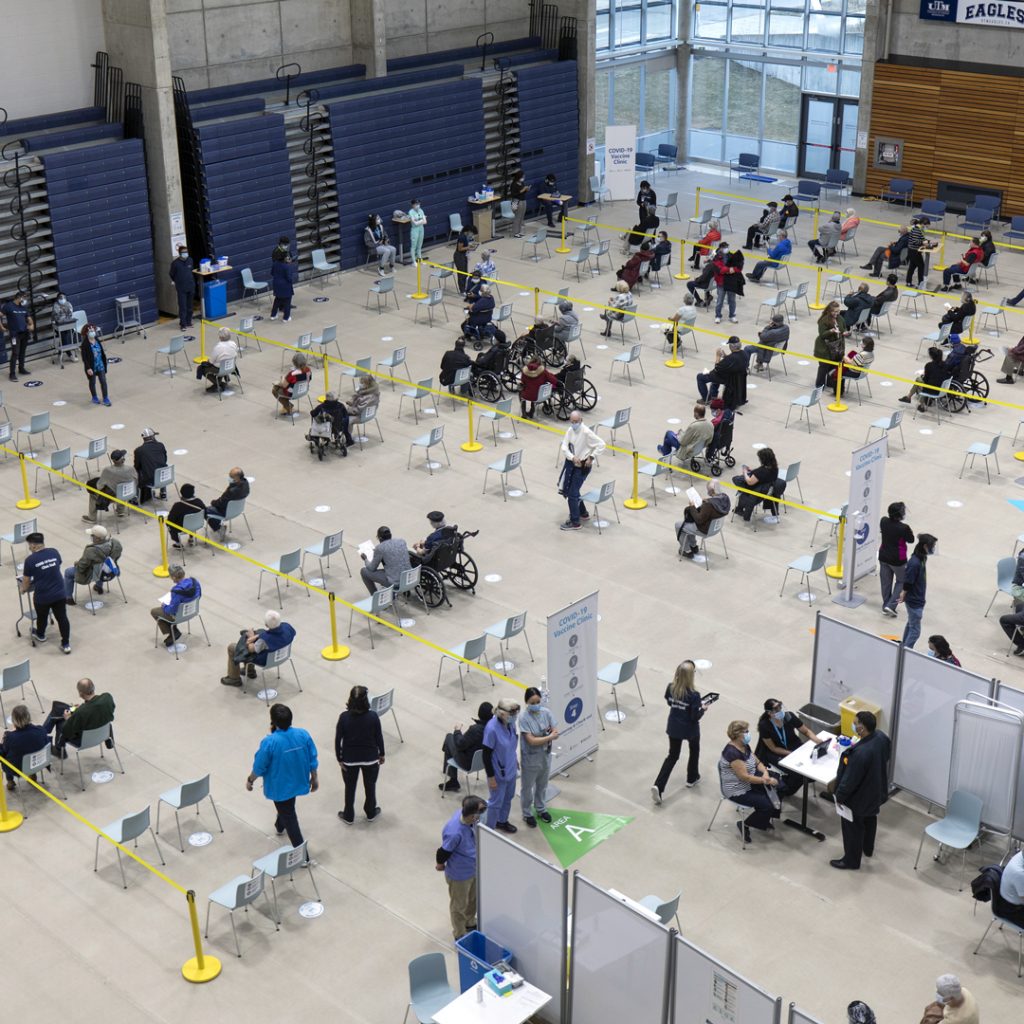Dean Steini Brown’s Statement on Discovery of Unmarked Graves in Saskatchewan
June 24/2021Dear DLSPH community, Today, after learning about the 751 children discovered in unmarked graves at Marieval Indian Residential School in Saskatchewan, I am reflecting on what I can do to advance Reconciliation -- and what can be done by the Dalla Lana School of Public Health and the University of...
Teaching the Art of Diplomacy in Public Health
 June 23/2021
June 23/2021
He works with national governments and world bodies, but DLSPH Adj. Prof. Garry Aslanyan always maintains a simple question in the back of his head: ‘What does this mean for the health of a person?’ It’s a question that can easily get lost in cities like Geneva and New York,...
Vivek Goel’s Public Health Vision
 June 22/2021
June 22/2021
Prof. Vivek Goel – his career, and academic evolution -- is deeply entwined with the Dalla Lana School of Public Health and its emergence as Canada’s top public health school. As the former U of T provost and emeritus IHPME professor prepares to become president of the University of Waterloo,...
Meet DLSPH’s New Indigenous Health Lead
 June 21/2021
June 21/2021
Asst. Prof. Angela Mashford-Pringle, is DLSPH’s first-ever Indigenous Health Lead. She says her goals are “very simple”: “I want to create a safe and welcoming environment for Indigenous students, faculty, Elders and Knowledge Keepers and their guests.” But arriving at cultural safety might not be so simple. It means unpacking...
Improve Alignment Between Domestic and Foreign Policy says U of T Researcher
June 10/2021by Françoise Makanda, Communications Officer at DLSPH Domestic policy at the expense of foreign policy is an antiquated global health view, say U of T researchers. DLSPH researchers like Associate Prof. Erica Di Ruggiero are calling on all levels of government to adopt an integrated strategy that recognizes public health...
Statement by DLSPH Dean Adalsteinn (Steini) Brown on the Discovery of the Remains of 215 Indigenous Children
June 01/2021I was horrified and heartbroken to learn about the discovery of 215 Indigenous children buried in an unmarked site at the Indian Residential School in Kamloops, B.C. This atrocity is just the latest in a shameful and, until recently, largely hidden history of discriminatory, racist treatment of Indigenous peoples by...
A New Era for DLSPH and the WHO’s Collaborating Centre on Health Promotion
 May 07/2021
May 07/2021
DLSPH’s Centre for Global Health has just been named a WHO Collaborating Centre on Health Promotion – part of a network of 800 academic and research institutions that support the organization’s mission to improve the world’s health. Although the School has been a Collaborating Centre since the 1990s, moving the designation...
Making Big Data More Inclusive
 May 05/2021
May 05/2021
A newly appointed DLSPH Faculty member and data pioneer is on a mission to help public health practitioners hear the “quiet voices” not traditionally captured in online data gathering. Neil Seeman has become a world-leading expert in uncovering the perspectives and experiences of people who don’t typically take surveys or...
U of T and Merck Canada Partner to Advance and Share Vaccine Knowledge and Research
 April 27/2021
April 27/2021
A $3-million contribution from Merck Canada Inc. to the Dalla Lana School of Public Health’s Centre for Vaccine Preventable Diseases reinforces U of T’s role as a leader in the advancement of immunization and vaccine science. As Canada marks National Immunization Awareness Week, a new investment from Merck Canada to...
Podcast Dissects Cities’ Future through Sustainable Development Goals
![Healthy Cities in the SDG Era[1]](https://www.dlsph.utoronto.ca/wp-content/uploads/2021/03/Healthy-Cities-in-the-SDG-Era1-1024x1024.png) March 16/2021
March 16/2021
By Ayesha Shakeel, Communications Assistant and third-year undergraduate student in Global Health and Immunology A new podcast unpacks the UN’s Sustainable Development Goals and outlines how U of T faculty and students' research are helping to achieve them. The Centre for Global Health’s Healthy Cities in the SDG Era Podcast,...